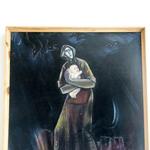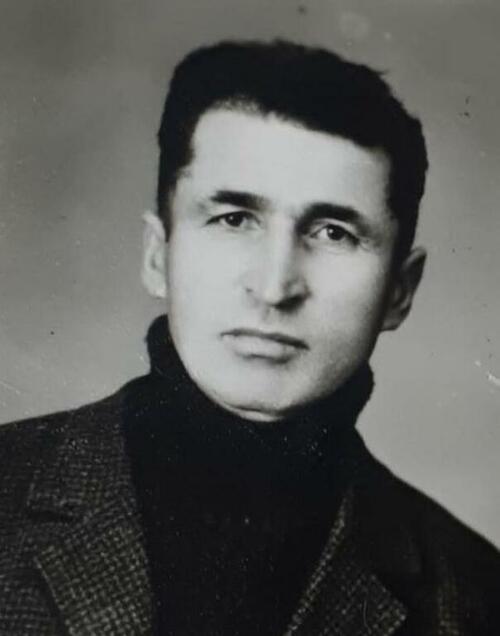In South Ossetia, there are many people who remember the stories of the eldest of the family about the genocide of the 1920s.
The Tedeev family lived a calm measured life in the village of Kornis, Tskhinval district. Georgian Mensheviks destroyed the comfort and family well-being in an instant ... It was one of the warm summer days of 1920. The memory of the five-year-old girl Liza Tedeeva has preserved the terrible shots of the atrocities of the Georgian fascists. She did not like to talk and remember about them, but sometimes in separate fragments she nevertheless told her children about what their family had experienced. “You should know and tell your children what we had to go through,” she said, as if anticipating the next genocide of the Ossetian people by Georgia in the 1990s - 2000s.
“My mother recalled, before the Georgian fascists came to their village, the facts of their atrocities in other villages were already known. And so, the men went into partisan units and were fighting against the enemy. And my grandmother with the children was at home when those villains came to them, as she called them,” says one of her daughters Zoya Dzhigkaeva.
Mother managed to hide the children in the basement, and she went out to the uninvited "guests". The children heard the cry of their mother, followed by a long silence ... And before the eyes of the girls, who were five and four years old at that time, there was a terrible, but incomprehensible picture at that time: their mother was lying on the ground, and the unfamiliar men were walking along their home, crushing everyone and loudly spoke in a language incomprehensible to them. They did not look only into the basement, where Liza Tedeeva hid two daughters and two sons. But the girls who were looking through the door slit remembered for the whole life the image of their beloved mother, who, saving her children, came out to meet death ...
Mother's poisoned milk
The girls were sitting quietly, trying to calm the younger brother, who was not even a year old. He wanted to eat, but as if understanding the tragedy of the situation, he restrained his tears as much as possible. Suddenly, the girls no longer heard the Georgian language, the slit through which they were watching what was happening did not completely cover the area of the house, but they saw clearly their mother lying on the ground and did not understand why she did not get up ...
The Georgian Mensheviks went to other families, killing, robbing and burning villages. The Tedeev family could not escape to North Ossetia, the mother with three little children did not dare to take this step. And as time has shown, the "road of life" turned out to be too tragic for most refugees.
“Mom always cried when she started talking about those terrible events, remembered her little brother who died two days after her mother’s death,” Zoya recalls, and she can’t hold back her tears.
When the girls with their brother in their arms left the basement, they laid him on the ground, and they themselves tried to talk to their mother, who looked at them silently and did not answer their questions. By that time, the little boy got hungry which he had endured for a long time, he crawled to the chest of his dead mother and began to suck her. The dead woman’s milk was poisonous, the child was poisoned and died two days later. Their father was also killed by the Georgian Mensheviks, and the children turned out to be complete orphans. They got to the orphanage, where they grew up with other orphans, but every day they remembered their parents and brother, and did not understand why fate was unfavorable to them.
Eyes telling about the past
According to Zoya, the wll-known South Ossetian writer, journalist, literary critic and public figure Alexander Tibilov often came to the orphanage. Heбольшие глаза noticed a little girl with large sad eyes, always standing alone. Lisa felt the tragedy of the family, the killing of her parents and the death of her brother so much that she was depressed. She did not communicate with anyone or play, always alone, immersed in a deep grief, reflected in her mournful empty gaze. Fear, longing, resentment and despair alternately appeared on Lisa's face. It was impossible not to notice or feel her feelings. Probably, it was the longing in the eyes of the little girl that prompted Alexander Tibilov to take the girl to his family and raise Lisa as her own daughter.
So, Lisa Tedeeva ended up in Tskhinval in a family that loved her, and did everything so that the girl could cope with grief, and a smile appeared on her face. They brought her up and married her off.
Brother and sister went to the front of the World War II in 1941. The brother did not return, went missing, and Valya’s sister went all the way of the war as a nurse, and there she met her future husband. After the Great Victory, they got married and lived in Tajikistan, but often came to South Ossetia to visit her sister, talk with her, and once again recall the tragic events of 1920, that later, even if belatedly, was determined the genocide of the Ossetian people committed by Georgia. The events that overnight ruined the life of their family. Georgian fascists killed their father, mother and brother ... And they destroyed the childhood of the girls. There are thousands of such stories throughout South Ossetia.





